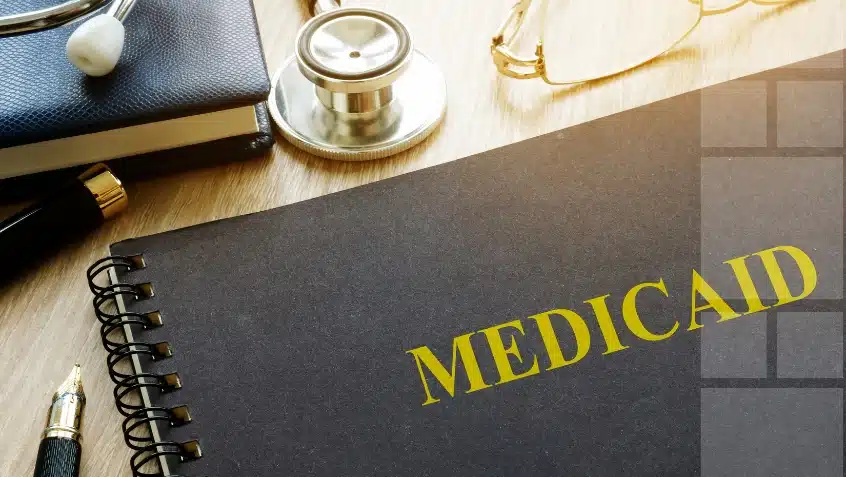This week, the Department of Justice surprised observers by filing a short letter with the Fifth Circuit Court of Appeals indicating the Trump Administration’s agreement with a district court decision invalidating the entirety of the Affordable Care Act (ACA).
This new, more extreme position is a departure from previously stated Administration policy, which sought to strike some of the law while preserving its more popular provisions, like protections for people with pre-existing conditions, the ability for people under 26 to remain on a parent’s insurance, and prohibitions on charging older adults exorbitant amounts for coverage.
Read More
Yesterday, a federal judge blocked efforts by two states to impose onerous paperwork and employment requirements on Medicaid recipients as a condition of maintaining coverage. For the second time, the judge found that Kentucky’s plan was not permissible under the Medicaid statute, and that similar rules in Arkansas — that have already led to thousands of Arkansans losing coverage — could not stand. The rulings are a set back for the Trump Administration, which has sought to reshape the Medicaid program by allowing states to implement such restrictions.
Read More
The Medicare Rights Center applauds Congresswoman Katie Hill (D-CA-25) and Congressman Brian Babin (R-TX-36) for introducing The Medicare Part B Fairness Act (H.R. 1788) in the U.S. House of Representatives.
The bill would improve the health and economic security of people with Medicare by limiting the amount and duration of the Part B Late Enrollment Penalty (LEP) and by expanding Special Enrollment Periods (SEPs) to include people with pre-Medicare coverage other than employer-sponsored group health plans.
Read More
It is with deep sorrow that we announce the passing of Cathy McElroy, our dedicated colleague and friend who worked tirelessly to further the Medicare Rights Center’s mission.
As Vice President of Operations for two decades, Cathy’s talents, compassion, and grace have been critical to our organization’s success. She touched the lives of those in the Medicare Rights community and many beyond it and will be forever missed.
Read More
Electronic Health Records (EHRs) allow providers and hospitals to input information about a patient’s health, diagnoses, and treatments into a computer system. These records can, when used correctly, help physicians keep track of patient histories and preferences and improve quality of care. They also give patients more access to their own data, increasing their ability to seek second opinions, better understand their health issues, and make corrections where needed. The use of EHRs has exploded in recent years, with 9% of hospitals using them in 2008 and 96% today.
Read More
Today, 12 organizations representing health care consumers, labor unions and health care providers, formally launched the Coalition for Fair Drug Prices. The diversity of groups is historically symbolic, and demonstrates a collective desire to hold policymakers accountable for reining in high and rising prescription drug prices.
Read More
This week, the nonpartisan Kaiser Family Foundation (KFF) released an issue brief examining the issue of oral health for people on Medicare. It describes the consequences of foregoing dental care, current sources of dental coverage, use of dental services, and related out-of-pocket spending.
Despite the evidence that oral health is related to physical health, Original Medicare does not cover most dental care needs. While some Medicare Advantage plans may offer dental benefits, this coverage is often limited, and its availability can vary considerably across plans. As a result, many people with Medicare often lack adequate oral health coverage, which exposes them to serious health complications and high out-of-pocket spending.
Read More
The President’s annual budget request is a statement of values. It is incredibly troubling then, that President Trump’s budget blueprint for FY 2020, submitted this week, again prioritizes deep cuts to programs on which older adults and people with disabilities rely, including Medicare, Medicaid, and the Affordable Care Act.
Read More
Each year, the Centers for Medicare & Medicaid Services (CMS) releases a draft rate notice and call letter, which outlines rules and payment policies that will apply to Medicare Advantage plans in the upcoming plan year. Interested parties—including plans, beneficiaries, and advocates—can submit comments in response, which CMS takes into consideration when finalizing its proposal. The agency then releases a final rate notice and call letter in the spring, which contains information that plans use to submit their bids to offer Medicare Advantage and Part D plans.
Read More
In January, Congress temporarily extended two important Medicaid provisions that help older adults and people with disabilities live at home and participate in the community—the home and community-based (HCBS) spousal impoverishment protection and the Money Follows the Person (MFP) program.
Unless Congress acts soon, these programs will expire on March 31. Take action to help protect Medicaid HCBS.
Read More










